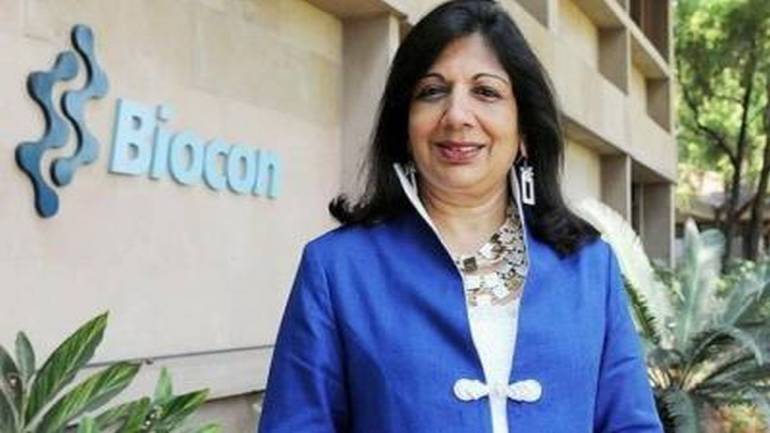EBITDA stood at 31 percent for Q1FY20 compared to previous year’s 26 percent.
Bio-pharmaceutical company Biocon July 25 reported an 86 percent year-on-year (YoY) jump in net profit at Rs 223 crore for the quarter ended June led by growth of biosimilars and small molecules businesses.
The company reported a net profit of Rs 120 crore in the year-ago period.
Total revenue for the quarter grew 25 percent to Rs 1,466 crore in the April-June period, Biocon said in a statement.
On sequential basis, Biocon's revenues declined 4 percent.
Analysts polled by Reuters estimated a net profit of Rs 198.2 crore on revenues of Rs 1,524.7 crore.
The gross spend on research and development rose 78 percent YoY to Rs 79 crore.
EBITDA stood at 31 percent for Q1FY20 compared to previous year’s 26 percent.
“Our long-term investments in biosimilars are delivering expected results as demonstrated by the 96 percent growth in our Biologics revenueat Rs 490 crore this quarter, led by the expansion of our geographical footprint and increased penetration of our products in key developed and emerging markets," said Kiran Mazumdar-Shaw, Chairperson and Managing Director of Biocon
Revenues from the biologics vertical, comprising biosimilars and novel biologics recorded 96 percent growth to Rs 490 crore driven by higher sales of biosimilar monoclonal antibodies (mAbs) in the US, Europe and other emerging markets.
Fulphila, a biosimilar Pegfilgrastim co-developed by Biocon and Mylan had a 21 percent volume share of the Pegfilgrastim syringes market in the US until May 2019, the company said. Biocon-Mylan's biosimilar Trastuzumab was approved in the US, and the duo has launched biosimilars Trastuzumab and Insulin Glargine in Europe. Biocon also gets an economic benefit from biosimilar Adalimumab. Biocon said it had seen sales growth of Trastuzumab, Insulin Glargine and rh-Insulin in key emerging markets in Africa and Latin American regions.
The sales of small molecules or active pharmaceutical ingredient (API) business grew 20 percent to Rs 480 crore in Q1, led by sales of key active pharmaceutical ingredients (APIs) and robust performance of our Generic Formulations business. Biocon is mainly known for APIs such as statins, immunosuppressants and speciality molecules.
The company which is moving up the value chain by marketing vertically-integrated formulations such Rosuvastatin and Simvastatin formulations in the US, said it is able to maintain its market shares and has seen some traction in Atorvastatin. Statins are a class of drugs used in lowering cholesterol.
Biocon said it had initiated a greenfield project at Visakhapatnam, Andhra Pradesh with an investment of Rs 600 crore to secure anticipated growth in fermentation-derived APIs, including a portfolio of immunosuppressants.
"This expansion will enable us to deliver on our vertically integrated strategy of developing and commercializing our own ANDAs and alsoservice the needs of our global API customers," Biocon said.
The company expects the facility to be operational over the next three years followed by commercialisation based on regulatory approvals in majormarkets.
The branded formulations business, which includes sales in India and UAE, reported a 9 percent drop in the sales at Rs 133 crore, as uncertainty in the UAE market continued to weigh down the overall performance of this segment.
The UAE business was impacted due to re-pricing of branded generic products mandated by the Ministry of Health, Biocon said.
The Research Services business that’s housed under-listed subsidiary Syngene registered a modest growth of 4 percent to Rs 421 crore
Shares of Biocon rose 0.17 percent to close at Rs 238.55 on BSE, while the benchmark Sensex dropped 0.04 percent to end 37,830.98 points.















